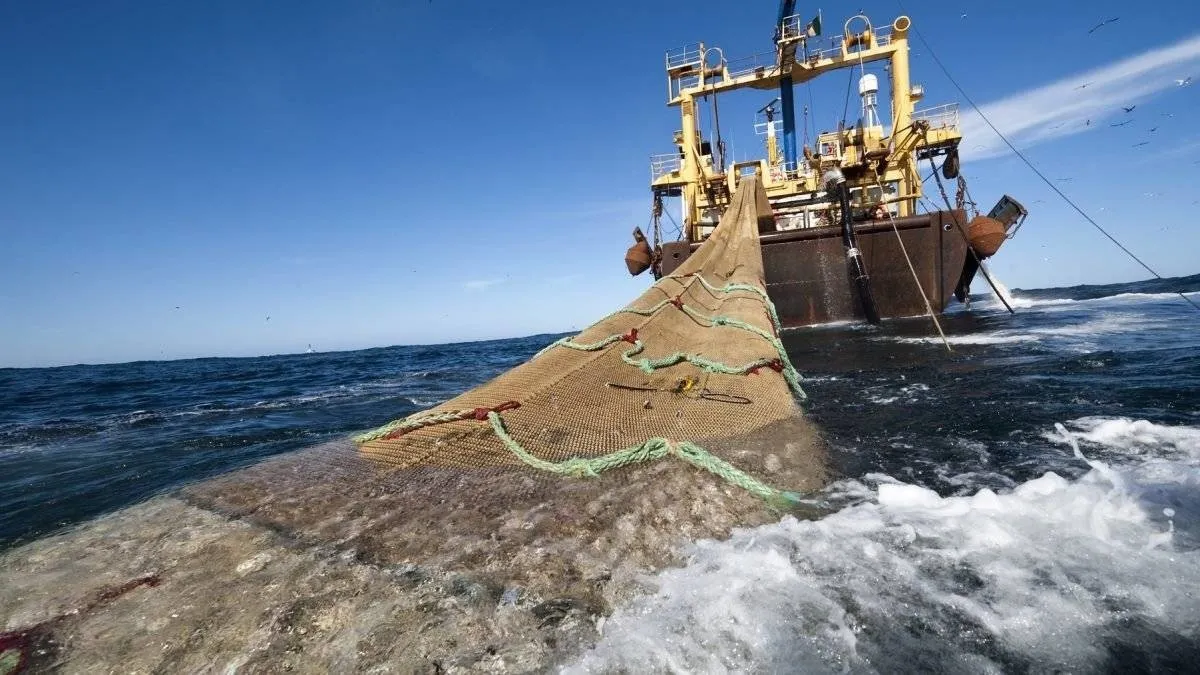Fishing in the Argentine Sea represents a multimillion-dollar business that could be a key source of income and exports for Argentina. However, the lack of an efficient fishing policy and adequate controls allowed several Chinese fishing vessels to illegally exploit the national maritime resources.
In this context, the province of Santa Cruz and the Chinese company Hongdong Fisheries Co Ltd, the world’s second largest with 161 vessels, reached an agreement that caused a conflict with Chubut. This agreement aims to modernize port infrastructure, through the construction of shipyards and the development of fishing plants, as well as supplying a fleet of around 500 ships operating in the “Mile 201”, the outer limit of the Argentine Exclusive Economic Zone (EEZ).
For this reason, the Yellow Fleet Chamber of Chubut (CAFACH) decided to submit a formal request to the National Executive Branch for national authorities to intervene in the agreement being carried out between Santa Cruz and the Chinese fishing company, which aims to assist vessels fishing through provincial ports near the EEZ.
 Tension over Chinese fishing vessels on Argentine coasts. Photo: mdz.
Tension over Chinese fishing vessels on Argentine coasts. Photo: mdz.
Concerns of the national fishing industry
The Yellow Fleet Chamber of Chubut (CAFACH) described the agreement as a “deal” and raised serious concerns, such as:
- Lack of national controls: The shortage of adequate monitoring could allow illegal incursions into the EEZ, worsening the exploitation of resources and affecting the biomass of the Argentine Sea.
- Unfair competition: Chinese vessels, with workers in precarious conditions, would operate at lower costs than national ones, affecting the local industry that complies with strict labor regulations.
- Environmental and economic risk: Without adequate oversight mechanisms, there is a fear of unprecedented looting of maritime resources and a threat to the sustainability of the national fishing industry.
In this sense, CAFACH President Gustavo González demanded that the national Government request public information protected by Law 27.275 to clarify the scope of the agreement. Although he acknowledges the potential benefits of improving port infrastructure and creating jobs, he emphasizes the need to protect the interests of the local fishing industry.
 Fishing vessels on the Argentine coast.
Fishing vessels on the Argentine coast.
The call to action
CAFACH insists that the agreement must be monitored to ensure that it does not exclusively favor foreign fleets to the detriment of Argentine resources and workers. It urges the national Government to take measures to strengthen controls, regulate fishing, and promote sustainable development that does not compromise the local industry.
The lack of clarity in this project has raised alarms in the fishing sector, which fears that the resources of the Argentine Sea will continue to be exploited without real benefits for the country.
Have you visited our YouTube channel yet? Subscribe now!

